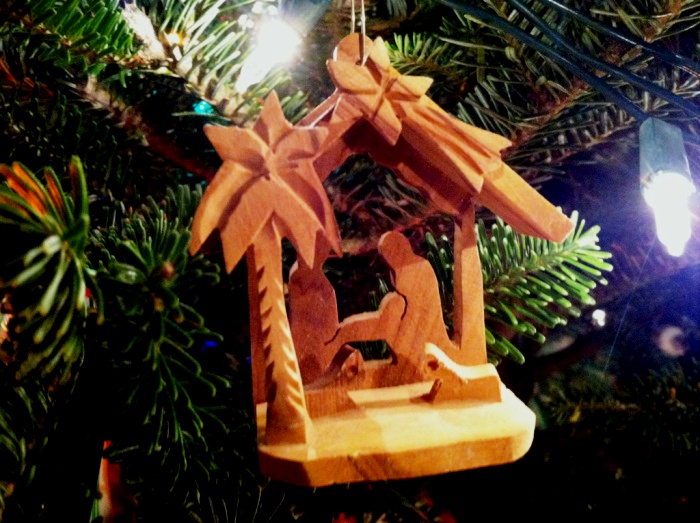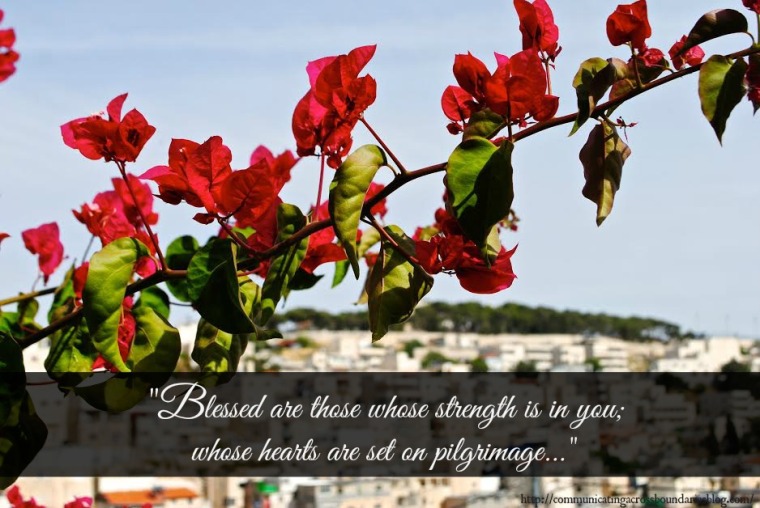I’m so happy to feature my mom today in this post on friendship. You can read more about my mom here and here. She is a gifted, amazing woman, the author of the books Jars of Clay ordinary Christians on an Extraordinay Journey in Pakistsn and Cat Tales and has modeled friendship well through the years. Enjoy this piece on friendship and please add your thoughts in the comment section.
**************

It was a long way to drive for a friend. Can we do it? Should we?
We got the phone message after church that Sunday from a funeral director in my home town. Our friend Phil had died, and Phyllis, his widow, wanted Ralph to come and officiate at the funeral the following Wednesday. We talked it through – it would mean driving the whole day Tuesday and back on Thursday from western New York to central Massachusetts. And we’re not as young as we used to be…
This started me thinking about the whole idea of friends and friendship. Just what is it that makes an acquaintance into a friend? Some never make it. They come into our lives and fade away and we barely remember them. For most it takes time and sharing life’s experiences. Then, rarely, we meet a special person who becomes an instant kindred spirit friend.
Some are friends from childhood and teen years. For those of us who have moved far from our birthplaces only a few of these will last through years of geographical separation. I have a love/hate relationship with social media, but its great blessing among a few others is the way we can reconnect with people from our past. Not long ago I received an email from one of the few friends left from my High School class. Joan had persevered with her daughter’s help in searching me out after losing my email address. We talked on the phone and she updated me on news from Mary Lou and Jessie, who moved to our town when I was in grade school and from the other Polly, a girl I had known perhaps from the age of four when I started going to Sunday School.
When my family moved across town in my ninth grade year,I started walking to High School with Joan, along with her cousin Gaynor and Lucilla. Lu came by my house and we walked together to where we met the other two. In those early morning walks and occasionally in the evening we talked about life and boys and teachers and the world’s problems. We worried and prayed as older boys were leaving school to fight in World War II. Then it all came really close to home when boys in our class started leaving. After graduation Lucilla and I worked together for the summer at two different jobs, but that would make another whole story. We went our separate ways to college and marriage. We moved overseas and she lived in Pennsylvania. A few years ago she died quite suddenly, and although we hadn’t seen each other often, I realized how much I would miss her. Joan was the one who called to tell me, and Ralph and I went with Joan to her graveside service in the Catholic cemetery in my home town.
There are those special friends I keep in touch with from my four years at Gordon College. Bev phones a couple of times a year, and we get together with her and her husband Don when we’re in their area once a year or so. I called Maggie last summer when we were driving to Massachusetts to spend July 4 with Marilyn and her family. “I thought I’d be hearing from you,” she said. “It’s that time when you usually come through.” We went out to lunch together, and it was as if no time had lapsed since our last meeting a whole year before. Others we only hear from at Christmas time, but I love our holiday mail.
Some of the richest friendships are with those people we lived and worked with in our years in Pakistan. Many were with the same mission, and we became like family with all our quirks and idiosyncrasies. There are Ray and Jean;and Shirley, whose husband Warren has gone to be with Lord. We shared a tiny house with these two couples when we first moved to Pakistan. Living that way for nearly 3 months with five kids under five and only two bedrooms, a shared kitchen in a corner of the verandah, it’s quite an amazing gift of God’s grace that we remained close friends. Then I think of Bettie and Hu and all we shared through the years. Hu pulled our oldest son out of a muddy canal saving Ed’s life. When Hu and Bettie’s two sons visited us one year when we were in the USA, Marilyn, then in high school, told me, “I didn’t know whether to introduce them as my best friend’s brothers or my brothers’ best friends!” Phyllis and Hannah and Dr. Mary, are single women who gave themselves to serve the medical needs of the women and children of Sindh. These, among others, I count as special friends.
Not all our friends in Pakistan were from our mission family or from our generation. We were blessed with many from other missions and countries and denominations. Occasionally one turned into a friend from an unlikely beginning. I never expected to call Ruth a friend. She scared me. She had strong opinions and she wasn’t shy about voicing them. Then she dropped in on me one day in Murree when I was sewing name tags on Ed’s clothes, getting him ready for boarding school. Ruth pulled a chair over next to me picked up a spare needle and started helping me. We talked that day, and shared how hard it was to be sending our kids away at such a young age. Ruth shared a verse from Isaiah 54:13 that God had given to her for her children: “All your children will be taught of the Lord and great will be the peace of your children.” I took that as a gift that day, and have prayed it ever since for our children, then their wives and husband, and our seventeen grandchildren, now our great grands. That was the day the woman whom I never thought I would call a friend, became so special to me.
One thing that stands out in all these special relationships – we seem able to drop right back into a genuine intimacy no matter how much time has passed. I never hear a word of criticism nor do I voice any: “Why haven’t I heard from you?” Or “why don’t you call more often?” We just accept the special gift of whatever time we have and get on with catching up on the news. Friendship involves a special kind of love and when such a relationship lasts for decades it is very much about grace, that acceptance that says without words, I know you, we know each other with all the good and the bad, the strength and the weakness, I’m just so happy to be able to be with you, and let’s do it again – sooner!
So we did it for our friends, Phil and Phyllis, remembering a good man, a funny man who always had a story. “Stop me if I’ve told you this before” but no one ever stopped him. He was our friend so we drove to Massachusetts on Tuesday, shared with his family and friends at his service, and drove back on Wednesday, tired, very tired, but knowing we had been blessed in Phil’s life by a very special friendship.


 More about the author: Heidi is a daughter, a sister, a wife, and a mom. She is also a multiple-marathoner, a scuba diver, a third-culture kid and a follower of Jesus. Born near the front range of the Rockies, she grew up in Portugal, Mozambique, Kenya and a few other places here and there. An Africanist by education, a U.S. Air Force veteran by skill set, and a homemaker by choice, she enjoys making home wherever the family goes. With three children aged 4, 2, and 2 months, mommy hood leaves less time for scuba diving and training for long races, but she manages to find the time to roast coffee at home and share her thoughts at
More about the author: Heidi is a daughter, a sister, a wife, and a mom. She is also a multiple-marathoner, a scuba diver, a third-culture kid and a follower of Jesus. Born near the front range of the Rockies, she grew up in Portugal, Mozambique, Kenya and a few other places here and there. An Africanist by education, a U.S. Air Force veteran by skill set, and a homemaker by choice, she enjoys making home wherever the family goes. With three children aged 4, 2, and 2 months, mommy hood leaves less time for scuba diving and training for long races, but she manages to find the time to roast coffee at home and share her thoughts at 




 my fear that they were not liking me and my misguided attempts to still be okay. One time, I said my miniature souvenir charpoy (a wooden framed, jute twine bed), which was 1/6 the actual size, was an exact replica of the beds Pakistanis slept on. I explained that the beds were small so there would be enough space for the many beds needed for large families who lived in one-room homes.
my fear that they were not liking me and my misguided attempts to still be okay. One time, I said my miniature souvenir charpoy (a wooden framed, jute twine bed), which was 1/6 the actual size, was an exact replica of the beds Pakistanis slept on. I explained that the beds were small so there would be enough space for the many beds needed for large families who lived in one-room homes. While there was a kernel of truth in my story, i.e. I did have different life experiences, my decision about what that meant took me down a path of incongruities: I set myself apart from others, while doing all I could to become the poster child for middle America.
While there was a kernel of truth in my story, i.e. I did have different life experiences, my decision about what that meant took me down a path of incongruities: I set myself apart from others, while doing all I could to become the poster child for middle America. Joy L. Salmon is a former TCK. She lived in Pakistan for most of her youth. Her dissertation research was on the early-adult experiences of third-culture kids (TCKs) who returned to the USA upon graduation from high school overseas. She is a licensed psychologist, with a Ph.D. In Counseling Psychology & Human Systems, and the founder of workwiselearning.com.
Joy L. Salmon is a former TCK. She lived in Pakistan for most of her youth. Her dissertation research was on the early-adult experiences of third-culture kids (TCKs) who returned to the USA upon graduation from high school overseas. She is a licensed psychologist, with a Ph.D. In Counseling Psychology & Human Systems, and the founder of workwiselearning.com.
 It’s dark and it’s painful – but abuse of missionary kids is rightly being brought into the light. The loyalty code that makes people hesitant to confront is being replaced by a Godly recognition of sin and the need for confrontation and repentance, the need for justice.
It’s dark and it’s painful – but abuse of missionary kids is rightly being brought into the light. The loyalty code that makes people hesitant to confront is being replaced by a Godly recognition of sin and the need for confrontation and repentance, the need for justice.